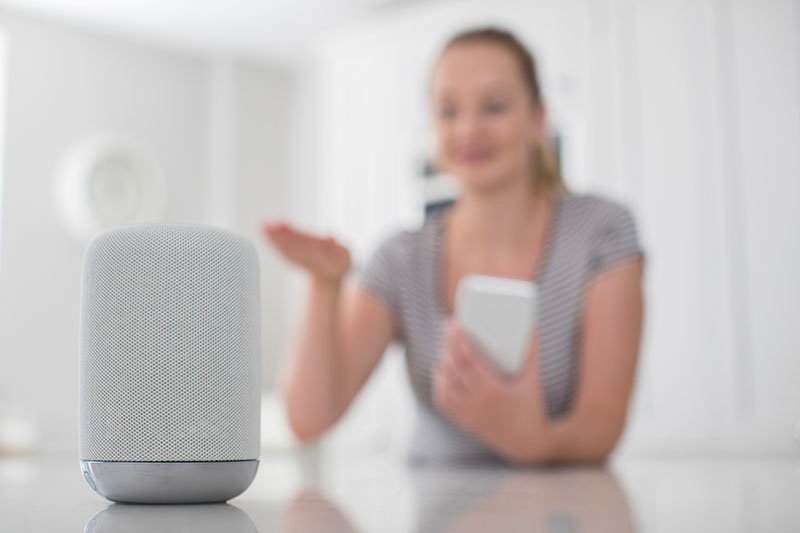Amazon Alexa and Google Home have become popular gadgets, useful for checking the weather, getting the latest sports scores, or even cooking a turkey. However, when it comes to customer service, they are not yet smart enough.
These smart speakers have great potential for a wide variety of tasks, from shopping for Christmas to setting up appointments. It’s easy to imagine a world in which companies collaborate to provide voice-enabled customer service through virtual personal assistants. In fact, it could be a major economic enabler.
For example, imagine saying “Alexa, book an early morning flight to Chicago for next Monday, with a hotel and rental car” and getting the response back that “I’ve booked you a 6:00 a.m. flight arriving at noon. Your car is reserved and the hotel is expecting you. Details have been emailed to your work account. Enjoy your trip.” The device could ask you if you want to confirm before finalizing the booking. It could also make different arrangements depending on whether it’s a work trip or a vacation.
The technology to do that exists today. So what’s stopping this from happening? Why don’t companies link their services on the back end and provide them through these devices? In one word, the answer is “data.” It’s well known that Amazon and Google collect information about every interaction they’ve had with you, from buying a book to searching for a phone. What they do with all that data remains a mystery. One thing we know Amazon will do with it is use it to enter new markets and compete in new industries.
That’s one primary reason why companies are reticent to share their data about interactions with customers with the two biggest providers of these assistants. If you were a bank, a retailer, or a travel company, would you really want to let either Amazon or Google know exactly how your customers interact with you? Proprietary data is what keeps companies in business, so it’s no wonder they don’t want to hand it over to the tech giants.
So what will it take to get to the world I’ve described? Well, it would be great if Amazon and Google reengineered their devices so that they became “pass through” devices that didn’t collect data. But that’s unlikely to happen. What is more likely is that a company like Apple or Samsung will release a competing device that doesn’t collect consumer data. Yes, Apple offers a smart speaker device now, but for various reasons it hasn’t caught on. Applications like the ones I’ve described would make a compelling case for buying such a device.
It would be very easy for one of these giants to create devices that enable companies to connect through application programming interfaces (APIs), but still leave the resulting data in the hands of the company that owns it. This is exactly what Apple does now with Apple Business Chat, and it’s the reason why businesses are flocking to Apple Business Chat where they didn’t with Facebook Messenger.
In the next couple of years, companies will figure this out. It may happen because standards bodies agree on how to securely connect smart speakers with systems that hold consumer data, ensuring the consumer has consented. The company that owns the data and understands the consumer’s preferences would thus be able to develop a richer understanding of the consumer because they will be able to provide more convenience and higher value. Those companies will win points for providing interactions in the most intuitive way, by letting customers speak to them as they would to a person.
About the Author
P.V. Kannan is the co-founder and chief executive officer of [24]7.ai, a global leader in intent-driven customer engagement solutions. He co-founded [24]7.ai in 2000 to make customer service easy and enjoyable for consumers and has been a pioneer in integrating technology with business process operations to improve all aspects of the customer experience. Kannan is a recognized leader in customer experience, from dramatically improving contact center operations; to developing a big data predictive analytics platform; to pioneering the use of A.I. in customer experience. He holds more than 30 patents (issued and pending), has written several articles that cover some of the key issues around A.I. and chatbots, and has been featured in several books, including “The World is Flat” and “That Used to Be Us” by Thomas L. Friedman. Kannan’s upcoming book “The Age of Intent,” is now available for pre-order on Amazon.
Real Customer Service Can’t Happen Yet on Smart Speakers
It’s easy to imagine a world in which companies collaborate to provide voice-enabled customer service through virtual personal assistants. In fact, it could be a major economic enabler. But Amazon Alexa and Google Home aren't smart enough yet.














